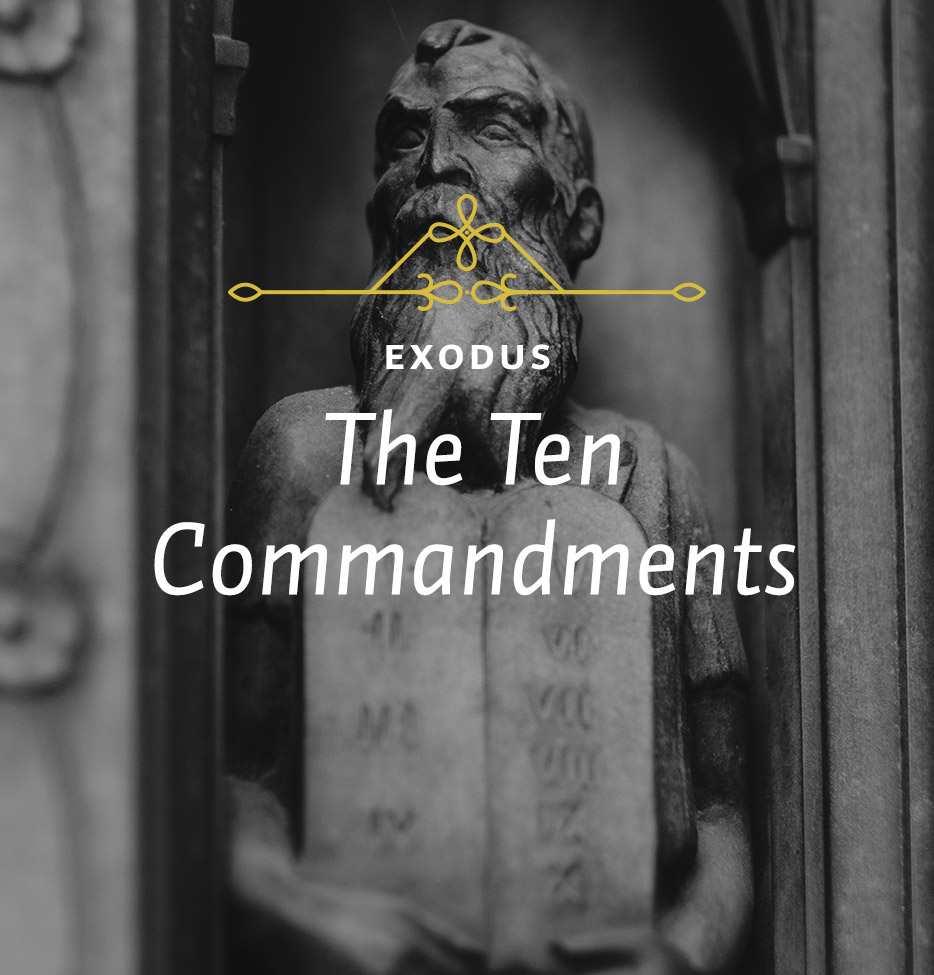There is nothing that our society needs as much as the Ten Commandments. In a commencement address at Duke University in 1987, Ted Koppel, the well-known news broadcaster, reminded the class of the Ten Commandments, and the fact that our culture needed them very much. He went down the list of them and he related them to all the moral problems of our time. Nobody liked that, but he was absolutely right.
The problem, of course, is that Americans don’t want them, and as a matter of fact, they don’t even know them. Americans consider themselves to be a very religious people. They have high beliefs in God and all of the other things that you would associate with religion. However, when someone like George Gallup probes to find out what they actually know about the very Bible they profess to have as the basis of their religion, they could hardly tell anything about it. Very few Americans could even list half of the Ten Commandments. George Gallup calls this “biblical illiteracy.” If we don’t know the Ten Commandments and we are not living by the Ten Commandments, that raises the question, “What are the commandments by which we are living?”
In fact, few people believe God’s law anymore, regardless of what they might say they believe. More than half of those who respond to such surveys express an interest in doing those very things that are directly opposed to biblical commands, such as stealing, lying, and cheating on one’s spouse. Sadly, when surveys are done, evangelicals don’t distinguish themselves noticeably from those who have no evangelical convictions at all. We need the Ten Commandments in our day more than ever.
Exodus 19 tells us about a time of preparation before receiving the law. First, there was an exchange between God and the people, in which they were asked if they were willing to enter into a law covenant with the Lord, and they responded that they were. They replied that whatever the Lord told them to do, they would do it (v. 8). They didn’t do it of course. They broke it almost immediately. Second, there was a three-day period of ceremonial cleansing and consecration (vv. 9-15). Third, Moses fenced off the mountain, lest when God came down to meet with Moses, the people might touch it and die.
Now those preparations stress two things. First of all is the holiness of God, the very thing that was impressed upon Moses way back at the burning bush. You know when he heard the voice of God, the voice told him to take off the shoes because the ground on which Moses was standing was holy. As they were about to receive God’s law, all those things that frightened the people—the fencing off of the mountain, the cloud—was meant to stress God’s holiness.
Then there is a second thing that these preparations showed: a holy God requires a holy people. These preparations were a visible expression of what we find later in the book of Leviticus (which Peter also quotes in his first epistle). Four times God tells the people to “be holy, because I am holy.” What does it mean to be holy, to worship a holy God in a holy way? The answer is given in the Ten Commandments.
We call them the “Ten Commandments,” but there are other names for them. The Jews call them the Ten Words, which is what the Greek word, Decalogue, means. The Ten Commandments are also called the Law, the Covenant, the Law and the Covenant, the Tables of Testimony, or the Law of the Testimony.
The Ten Commandments are also handled in different ways in terms of how they are organized. The Roman Catholic Church and some Lutheran communions treat verses 3-6 as one commandment (whereas others see them as two), and in order to get ten, they divide the tenth into two commandments. Some branches of the church mix the order, putting the seventh commandment before the sixth. As far as the two tables of the law are concerned, some put four commandments on one side (having to do with worshiping and honoring God) and six on the other (having to do with the way we honor and care for other human beings). Some break them up into two sets of five commandments each.
Today, scholars think that probably all ten commandments were on each of the two tablets, with each party involved receiving a copy of the covenant. So presumably one was for the people and one was for God, although Moses did bring both tablets down with him.
We don’t have the space to look at them exhaustively, but it will be helpful to give an overview.
The first commandment says, “You shall have no other gods before me.” Now that’s where we would expect the commandments to begin. They begin with God and our relationship to God, because everything begins with Him. And if we are going to be in a right relationship with other people, we have to begin here. What’s God requiring in this first commandment? He’s demanding our exclusive and zealous worship. To worship any god other than Jehovah is to break this commandment. But in order to break it you don’t have to worship a clearly defined pagan god, such as Zeus or Minerva. Anything in your life that takes priority over God becomes an idol. So, if getting ahead in work by striving to succeed in your job is the very most important thing for you, that has become your idol and you’ve broken the commandment. Another person can be an idol for you, or your own conception of yourself can be an idol.






